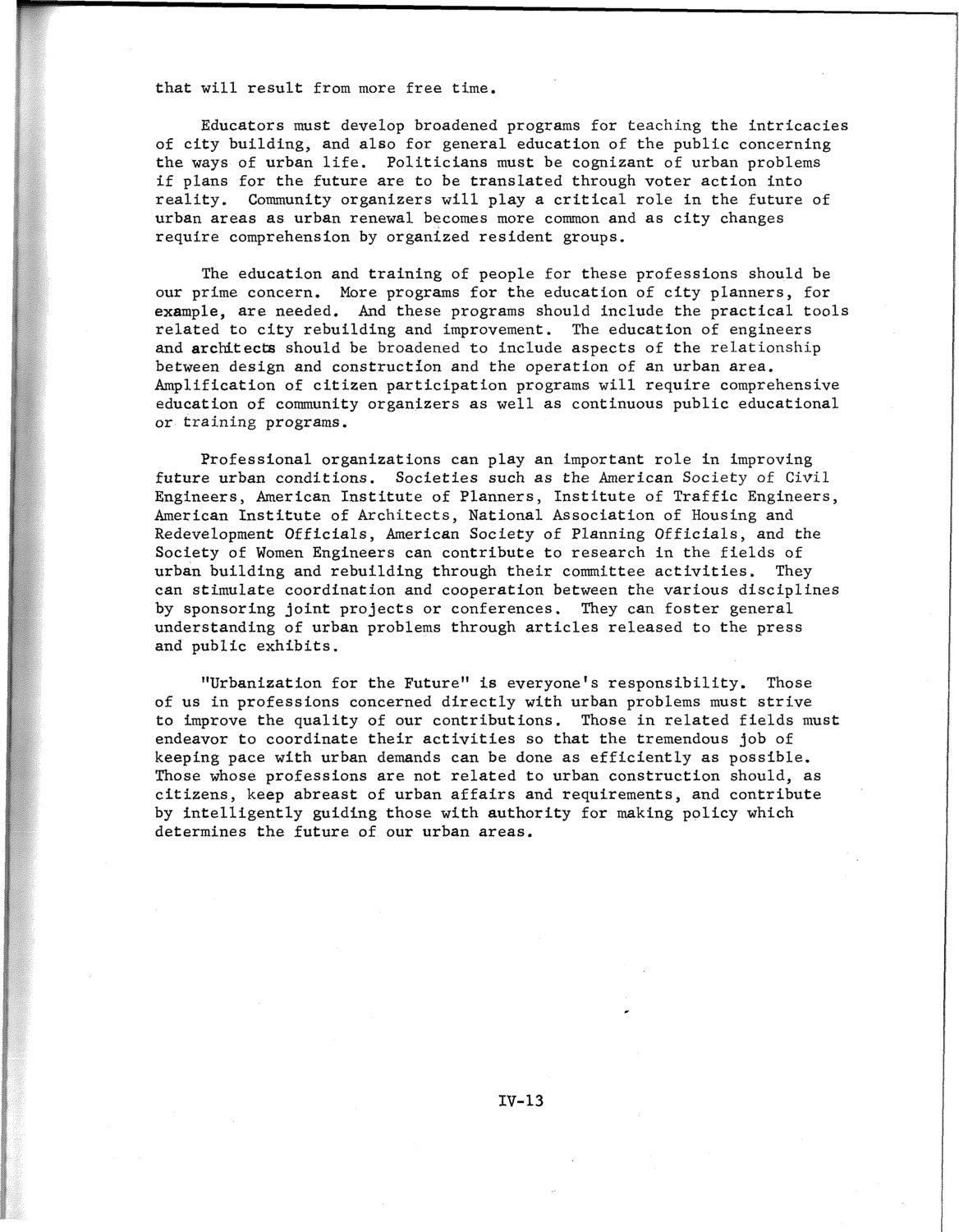| |
| |
Caption: SWE - Proceedings of the First International Conference of Women Engineers and Scientists
This is a reduced-resolution page image for fast online browsing.

EXTRACTED TEXT FROM PAGE:
that will result from more free time. Educators must develop broadened programs for teaching the intricacies of city building, and also for general education of the public concerning the ways of urban life. Politicians must be cognizant of urban problems if plans for the future are to be translated through voter action into reality. Community organizers will play a critical role in the future of urban areas as urban renewal becomes more common and as city changes require comprehension by organized resident groups. The education and training of people for these professions should be our prime concern. More programs for the education of city planners, for example, are needed. And these programs should include the practical tools related to city rebuilding and improvement. The education of engineers and architects should be broadened to include aspects of the relationship between design and construction and the operation of an urban area. Amplification of citizen participation programs will require comprehensive education of community organizers as well as continuous public educational or training programs. Professional organizations can play an important role in improving future urban conditions. Societies such as the American Society of Civil Engineers, American Institute of Planners, Institute of Traffic Engineers, American Institute of Architects, National Association of Housing and Redevelopment Officials, American Society of Planning Officials, and the Society of Women Engineers can contribute to research in the fields of urban building and rebuilding through their committee activities. They can stimulate coordination and cooperation between the various disciplines by sponsoring joint projects or conferences. They can foster general understanding of urban problems through articles released to the press and public exhibits. "Urbanization for the Future" is everyone's responsibility. Those of us in professions concerned directly with urban problems must strive to improve the quality of our contributions. Those in related fields must endeavor to coordinate their activities so that the tremendous job of keeping pace with urban demands can be done as efficiently as possible. Those whose professions are not related to urban construction should, as citizens, keep abreast of urban affairs and requirements, and contribute by intelligently guiding those with authority for making policy which determines the future of our urban areas. IV-13
| |